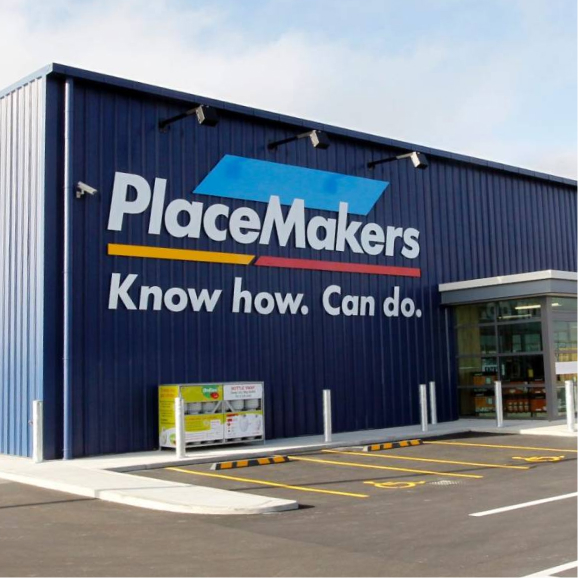The eCommerce industry saw a significant shift in 2020 as the COVID-19 pandemic spread globally.
With lockdowns and social distancing measures in place, brick-and-mortar stores closed, and consumers turned to online shopping as their primary means of purchasing goods. This sudden shift in consumer behaviour led to an explosion in the online purchasing market. In addition, delivery companies like FedEx, UPS, and Courier Post, have become an essential part of the process of fulfilling orders and keeping the economy running.
As we continue to navigate the ongoing pandemic, it’s clear that integration in eCommerce is more important than ever before. A seamless online shopping experience is crucial for businesses to survive and thrive in this new reality.
In this blog, we explore the importance of integration in eCommerce and how you can use your systems to improve the customer journey, increase efficiency, and adapt to changing market conditions.
eCommerce, be there or miss out
Over the last two years of COVID-19 lockdowns, the online purchasing market has exploded worldwide. In the US alone, eCommerce spending increased by 55% – hitting an astonishing $1.7 trillion.
To put this in perspective, in its entirety, New Zealand’s Gross Domestic Product in 2020 was a mere 212 billion.
To quote the former CIO of a major retailer here in New Zealand: “Never let a good crisis go to waste.” He meant that in this situation, budgets get freed up, and the run-to-market with new offerings becomes less constrained by red-taped or bound by process or internal politics.
Historically, the uptake of eCommerce here in New Zealand was slow compared to overseas markets. Kiwis traditionally prefer to ‘kick the tires’ before buying products, so they rely more on a brick-and-mortar retail experience. Obviously, when Covid-19 hit, this wasn’t an option, so eCommerce became the lifeline for most retailers – and buyers.
Alain Russell, the CEO/Founder of Blackpepper.co.nz – a local eCommerce solution provider, reported: “Over Covid, our customers saw an average ~400% increase in online sales compared to previous periods. Post Covid this reduced, but not to pre-covid levels. It seems to have settled about ~200% up. We did see a lot of our existing customers accelerate their online presence – especially the ones that were not all in on eCommerce yet.”

The role of integration
This transformation of how we buy and sell in a post-Covid digital age is why integrated systems with automated processes became critical.
If your staff are accustomed to fully or partially manual processes, a 400% jump in workload is nearly impossible to manage without increasing headcount. Having staff off with Covid puts additional pressure on the remaining members of the eCommerce team as well. And when you fail to deliver to customer expectations, you damage your hard-won reputation for excellent service.
Integration helps overcome staff shortages and increases in order volumes. For example, we replaced a client’s manual processes with integrations enabling automation of the order and invoicing process – allowing 96% of these business activities to be completed without human intervention. The rest of the team was freed up to manage the other 4% of unique cases and focus on customer care and not administration.
The BSM of the eCommerce world
For any online seller, B.S.M are the three most important letters: Buy, Sell, and Move.
- Buy – Getting products from suppliers, raising digital purchase orders, and receiving electronic invoices. This can be achieved by direct integration with the supplier or via a 3rd party EDI service provider.
- Sell – Getting products onto the eCommerce platform, ready to sell and capture the customer’s order details directly into your back-office systems.
- Move – This is a two-sided event, tracking the product from the supplier to your organisation for your internal staff and then from your warehouse or store to the customer.
How can integration help your BSM process?
Integrating eCommerce with your other systems can improve inventory and order management, logistics management and electronic partnerships with 3rd parties.
Connecting your eCommerce platform with your inventory management software and purchasing systems lets you update your inventory levels in real-time as orders are placed. This ensures that customers can only buy items in stock, reducing the risk of overselling and disappointing customers.
In the modern world, most major delivery partners provide the ability to electronically lodge a pick-up with a courier or shipping company along with the customer’s details, and the partner then manages the delivery process, and the customer is updated on the expected delivery date.
When you have connected systems and solid internal and external integrations, an order can be processed in seconds while seamlessly supporting your underlying business processes.
Stay ahead of the game!
By planning your integration landscape for the future, what may seem unnecessary one week, may save your business the following week. In addition, a solid integration platform allows you to extend your partnerships with 3rd parties by offering a suite of your own APIs for business partners to share information instantly.
Finally, as with any e-commerce provider, you live and die by your reputation and online reviews. The one critical factor in this is communication, keeping your customers updated on the status of their orders. Nothing annoys a customer more than calling your contact centre or store to find out where an order is. So, event-based, real-time customer electronic notifications (through the customer’s preferred channel) driven by smart integrations is a key feature all retailers should focus on. It drives call volumes and costs down and customer satisfaction levels up!

























